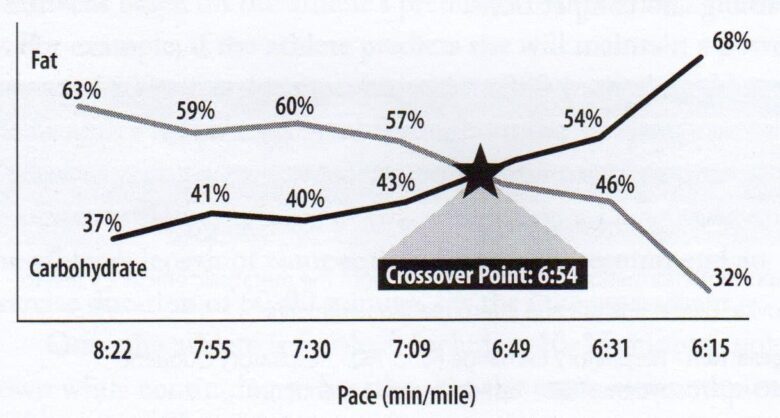Unlocking Metabolic Efficiency: The Role of Testosterone Therapy
In the intricate landscape of human physiology, hormones serve as both orchestrators and catalysts, influencing a multitude of bodily functions. Among these biochemical messengers, testosterone often takes center stage, long celebrated for its role in muscle growth, energy levels, and libido. Yet, in recent years, research has illuminated another dimension of this vital hormone: its capacity to enhance metabolic efficiency. As modern lifestyles increasingly grapple with issues of obesity, energy imbalances, and metabolic disorders, the potential of testosterone therapy is drawing the attention of healthcare professionals and patients alike. This article delves into the science behind testosterone therapy, exploring its implications for metabolic health, the mechanisms at play, and the evolving discourse surrounding its therapeutic use. Join us as we navigate this complex interplay of hormones and metabolism, uncovering the ways in which optimizing testosterone levels may pave the path toward improved health and vitality.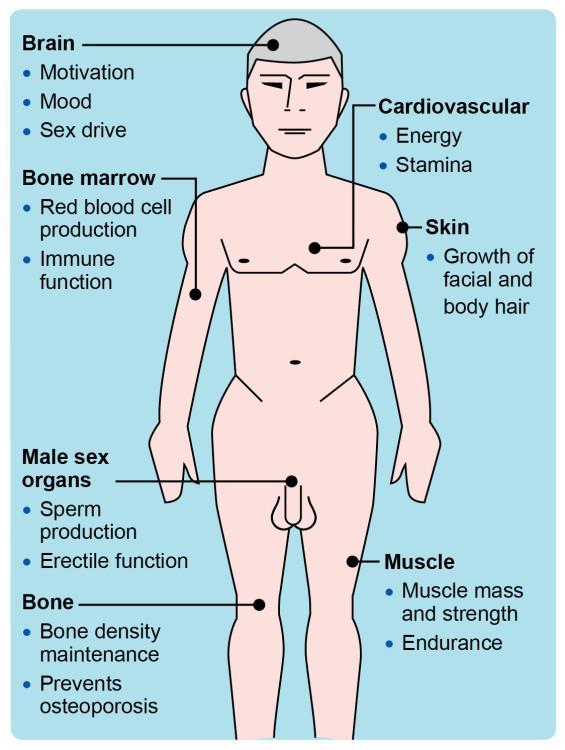
Exploring the Role of Testosterone in Metabolic Health
The relationship between testosterone and metabolic health is complex and multifaceted. Testosterone does not simply influence muscle mass and strength; it also plays a critical role in how the body utilizes energy. Studies have shown that adequate levels of testosterone may enhance insulin sensitivity, meaning that the body can effectively manage blood sugar levels and thus reduce the risk of type 2 diabetes. Men with lower testosterone levels often experience an increase in fat accumulation, particularly visceral fat, which is closely linked to metabolic syndrome. Enhancing testosterone through therapy can lead to a more favorable metabolic profile and potentially stave off metabolic disorders.
During testosterone therapy, individuals may see improvements in several metabolic markers, including:
- Increased lean body mass: Higher testosterone levels promote muscle development, which increases metabolic rate.
- Decreased fat mass: Testosterone helps in redistributing fat, improving body composition.
- Improved lipid profile: Therapy can result in healthier cholesterol levels, reducing cardiovascular risks.
understanding the hormonal influence on metabolism is paramount. The following table illustrates some key metabolic changes observed with testosterone therapy:
| Metabolic Parameter | Before Therapy | After Therapy |
|---|---|---|
| Body Fat Percentage | 25% | 20% |
| Insulin Sensitivity | Low | Improved |
| Lipid Levels | High LDL | Lower LDL |
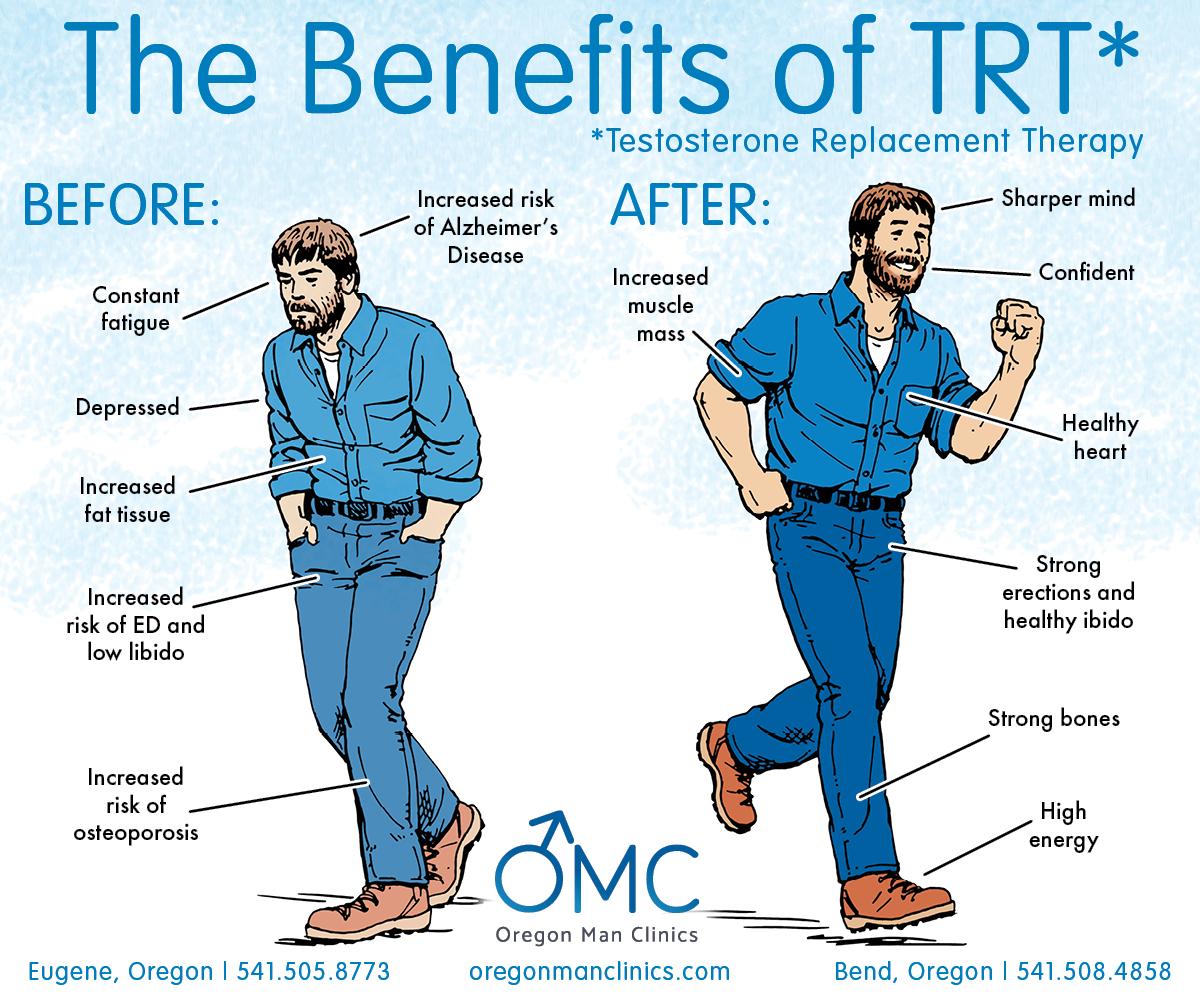
Understanding the Complex Relationship Between Hormones and Metabolism
The intricate interplay between hormones and metabolism is a fascinating field of study, particularly when considering how testosterone therapy can enhance metabolic efficiency. Testosterone, a critical hormone primarily associated with male characteristics, plays a pivotal role in various bodily functions, including muscle mass maintenance, fat distribution, and overall energy metabolism. As individuals age, testosterone levels naturally decline, which can lead to an array of metabolic issues such as increased fat mass, decreased muscle function, and reduced energy levels. Testosterone therapy aims to counteract these changes by restoring hormonal balance, potentially improving metabolic outcomes through:
- Fat Loss: Higher testosterone levels can promote fat oxidation, leading to more efficient body composition.
- Muscle Growth: Testosterone encourages hypertrophy, increasing lean muscle mass which in turn elevates the basal metabolic rate.
- Improved Insulin Sensitivity: Enhancing insulin responsiveness can lead to better glucose metabolism, further supporting energy efficiency.
Moreover, the adoption of testosterone therapy requires careful consideration of dosage and delivery method to maximize benefits while minimizing potential side effects. Monitoring testosterone levels through regular blood tests is essential to ensure optimal treatment efficacy. Key considerations include:
| Factor | Importance |
|---|---|
| Dosage | Individualized to minimize risks and maximize metabolic benefits. |
| Delivery Method | Different methods like injections or gels can have varied impacts on absorption. |
| Duration | Regular assessment of treatment impact over time to adjust therapy as needed. |
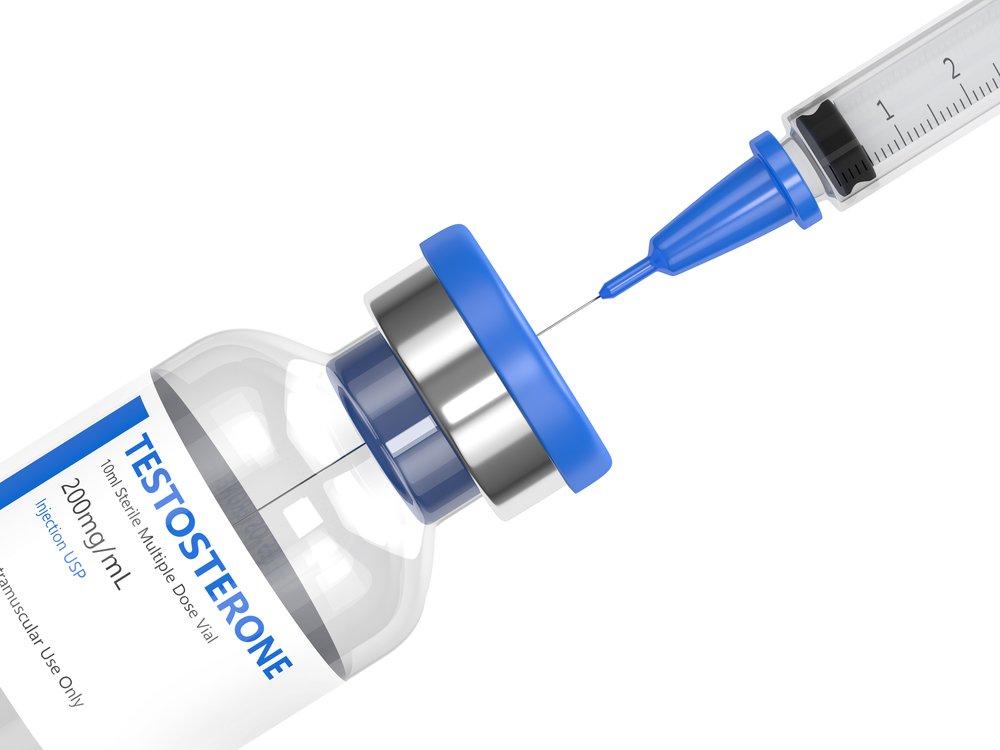
The Benefits of Testosterone Therapy for Energy and Weight Management
Testosterone therapy has emerged as a crucial tool for enhancing not only energy levels but also effective weight management, particularly in men experiencing hormonal imbalances. This therapy works by restoring optimal testosterone levels, which plays a significant role in several metabolic processes. When testosterone levels are adequate, individuals often report improvements in muscle mass, increased fat oxidation, and enhanced vitality. These changes can lead to an overall feeling of well-being and the ability to engage more actively in physical activities, creating a positive feedback loop of energy and health.
Moreover, the benefits extend beyond just feeling energetic. Testosterone therapy may assist in regulating appetite and improving insulin sensitivity, which are critical factors for maintaining a healthy weight. Individuals undergoing this therapy often experience:
- Enhanced metabolic rate leading to increased calorie burning.
- Reduced body fat while preserving lean muscle mass.
- Improved mood and motivation for healthier lifestyle choices.
These factors collectively contribute to a more efficient metabolic state, empowering individuals to achieve their desired health outcomes. Below is a simple comparison table showcasing the potential impacts of testosterone therapy on energy and weight:
| Change | Without Therapy | With Therapy |
|---|---|---|
| Energy Levels | Low | High |
| Fat Mass | High | Lower |
| Lean Muscle | Decreased | Increased |
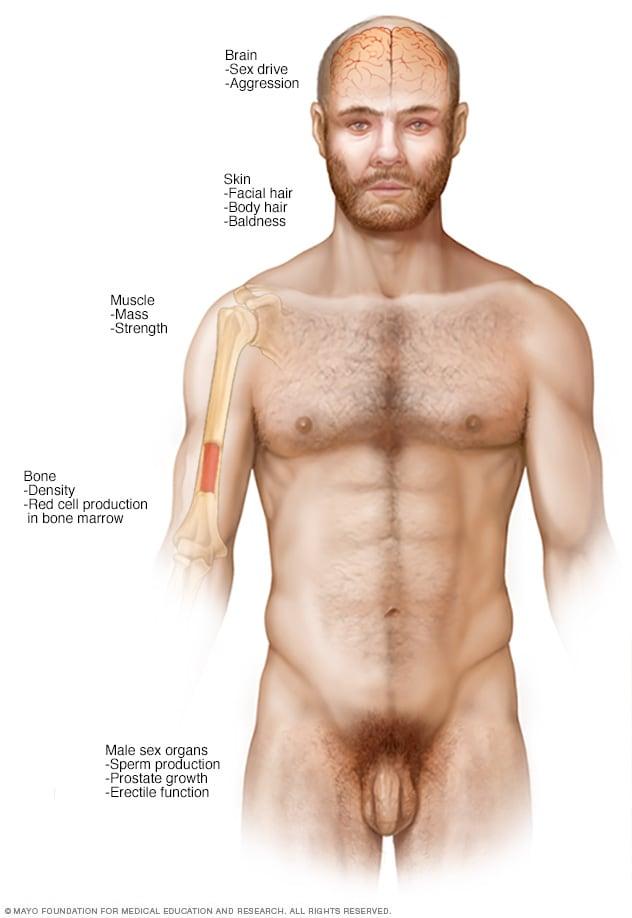
Evaluating the Risks: Is Testosterone Therapy Right for You?
When considering testosterone therapy, it’s essential to thoroughly evaluate both the benefits and potential risks. Common benefits associated with testosterone therapy include improved energy levels, enhanced mood, and increased muscle mass. These advantages can significantly impact overall metabolic efficiency and quality of life. However, individuals must also consider the associated risks, which may involve conditions such as cardiovascular issues, sleep apnea, and altered cholesterol levels. A personalized assessment by a healthcare professional is crucial to determine if the potential gains outweigh these risks.
To help you visualize the possible outcomes, here’s a summary of key factors to contemplate:
| Factor | Pros | Cons |
|---|---|---|
| Energy Levels | Increased vitality | Possible mood swings |
| Muscle Mass | Enhanced strength | Risk of dependency |
| Metabolic Rate | Improved efficiency | Potential for cardiovascular stress |
Ultimately, the decision to pursue testosterone therapy should be grounded in a comprehensive understanding of personal health history and lifestyle. Open dialogue with healthcare providers can facilitate informed choices tailored to individual needs, ensuring any approach to enhance metabolic efficiency is safe and effective.
Integrating Lifestyle Changes with Testosterone Therapy for Optimal Results
To maximize the benefits of testosterone therapy, it is crucial to align your treatment with strategic lifestyle modifications. Exercise plays a pivotal role, particularly in resistance training, which can enhance muscle mass and improve metabolic health. Incorporating a balanced routine that includes:
- Strength training: Aim for at least two sessions per week.
- Aerobic exercise: Include brisk walking, running, or swimming for cardiovascular benefits.
- Flexibility exercises: Such as yoga or stretching to improve mobility.
Nourishment is equally important; focus on a diet rich in nutrients that support hormone balance and metabolic efficiency. You might consider a meal plan that emphasizes:
| Food Group | Benefits |
|---|---|
| Lean Proteins | Support muscle repair and growth. |
| Healthy Fats | Promote hormone production, including testosterone. |
| Fruits & Vegetables | Provide essential vitamins and antioxidants for overall health. |
Incorporating these lifestyle changes will not only enhance the effectiveness of testosterone therapy but also contribute to improved overall health and well-being. Prioritizing quality sleep, effective stress management, and regular health screenings can further support your metabolic goals and ensure that your therapy achieves its desired outcomes.
Monitoring and Adjusting Therapy: Ensuring Long-term Success
Effective testosterone therapy requires ongoing monitoring to assess its impact on metabolic efficiency. This approach ensures that treatment protocols align with individual responses, maximizing benefits while minimizing potential side effects. Regular check-ins help in evaluating various parameters, such as:
- Hormone Levels: Periodic blood tests to track testosterone levels and make necessary adjustments.
- Body Composition: Monitoring changes in fat and muscle mass to gauge therapy effectiveness.
- Symptoms: Regular assessments of energy levels, mood, and libido to ensure that therapy is meeting personal health goals.
Adapting the treatment plan based on these evaluations can greatly enhance outcomes. It’s crucial to maintain a collaborative relationship with healthcare providers, making sure to address any concerns. To facilitate this process, consider keeping a symptom diary and scheduling follow-ups that may include:
| Follow-Up Frequency | Test/Assessment Type | Notes |
|---|---|---|
| Monthly | Blood Tests | Check testosterone and other hormone levels. |
| Quarterly | Body Composition Analysis | Evaluate fat/muscle ratios. |
| Bi-Annually | Full Health Check-Up | Comprehensive review of overall health. |
Expert Insights: Recommendations from Healthcare Professionals on Testosterone Use
In the evolving landscape of hormonal health, experts emphasize a personalized approach to testosterone therapy. Healthcare professionals recommend patients undergo comprehensive evaluations before starting any treatment. This includes assessing baseline testosterone levels through blood tests, understanding the patient’s medical history, and considering lifestyle factors such as diet and exercise. Key recommendations include:
- Regular monitoring: Periodic blood tests to track testosterone levels and adjust dosages as needed.
- Focus on lifestyle: Encouraging dietary changes and regular exercise to enhance metabolic efficiency naturally.
- Address underlying conditions: Treating conditions such as obesity or metabolic syndrome to optimize treatment outcomes.
Moreover, practitioners advocate for an informed discussion regarding the risks and benefits of therapy. Many emphasize the significance of understanding individual needs and potential side effects. As part of a holistic treatment plan, professionals suggest integrating non-pharmaceutical interventions, which can further aid in metabolic efficiency. Consider the following:
| Intervention | Benefit |
|---|---|
| Strength training | Increases muscle mass, supporting metabolic health. |
| Meditative practices | Reduces stress, potentially enhancing hormone levels. |
| Balanced nutrition | Provides the body with essential nutrients for hormone production. |
Q&A
Q&A: Understanding Testosterone Therapy for Metabolic Efficiency
Q1: What is testosterone therapy, and how does it relate to metabolic efficiency?
A1: Testosterone therapy involves administering synthetic testosterone to individuals whose bodies do not produce adequate amounts of this hormone. It plays a crucial role in various bodily functions, including metabolism, muscle growth, and fat distribution. By optimizing testosterone levels, the therapy can potentially enhance metabolic efficiency, improving how the body uses energy and processes nutrients.
Q2: Who might benefit from testosterone therapy for metabolic efficiency?
A2: Testosterone therapy is often prescribed for men with low testosterone levels, which can result from age, medical conditions, or genetic factors. Some individuals may experience symptoms like fatigue, weight gain, or decreased muscle mass. While primarily focused on addressing hormonal deficits, those struggling with metabolic inefficiencies may also find benefits from this therapy.
Q3: What are the potential benefits of testosterone therapy for metabolism?
A3: The potential benefits include increased muscle mass, reduced body fat, improved insulin sensitivity, and enhanced energy levels. By boosting muscle mass, testosterone therapy may elevate resting metabolic rates, leading to more efficient calorie burning. Additionally, improved insulin sensitivity can help regulate blood sugar levels, further contributing to metabolic health.
Q4: Are there risks associated with testosterone therapy?
A4: Yes, like any medical treatment, testosterone therapy can have side effects. Risks may include an increased chance of cardiovascular issues, sleep apnea, acne, and changes in mood. Therefore, it’s essential for individuals to consult with a healthcare professional to carefully weigh the benefits against the possible risks before starting treatment.
Q5: How is testosterone therapy administered?
A5: Testosterone therapy can be administered in several ways, including injections, transdermal patches, gels, and pellets implanted under the skin. The method of delivery often depends on individual preferences, lifestyle, and the recommendations of a healthcare provider.
Q6: How long does it take to see results from testosterone therapy?
A6: Results can vary, but many individuals may start to notice improvements in energy levels, mood, and strength within a few weeks of beginning therapy. However, significant changes in body composition, such as muscle gain and fat loss, typically take several months. Consistent monitoring by a healthcare provider is crucial to evaluate progress and adjust treatment as needed.
Q7: Is testosterone therapy suitable for everyone looking to improve metabolic efficiency?
A7: Not necessarily. Testosterone therapy is intended for individuals diagnosed with low testosterone levels. For those without hormonal imbalances, lifestyle changes such as diet, exercise, and sleep hygiene are often recommended as first-line approaches to enhance metabolic efficiency. Healthcare providers can help determine the most appropriate course of action based on individual needs and health status.
Q8: What lifestyle changes can complement testosterone therapy?
A8: Incorporating regular physical activity, particularly strength training, can enhance the benefits of testosterone therapy. Eating a balanced diet rich in whole foods, staying hydrated, and managing stress also play crucial roles in metabolic health. Prioritizing quality sleep is essential, as it directly impacts hormone regulation and overall wellness.
Q9: How can someone get started with testosterone therapy?
A9: The first step is to consult with a healthcare provider who specializes in hormonal health. They will typically conduct a thorough evaluation, including blood tests to assess testosterone levels, review medical history, and discuss symptoms. Based on this assessment, a tailored treatment plan can be developed to meet individual needs.
Q10: What is the future of testosterone therapy for metabolic efficiency?
A10: Ongoing research continues to explore the complex relationship between testosterone, metabolism, and overall health. As our understanding deepens, there may be more refined approaches to therapy, including personalized treatment plans that optimize metabolic function more effectively. The journey towards metabolic efficiency extends beyond hormones; it embraces a holistic approach to health and well-being.
Concluding Remarks
while testosterone therapy presents a promising avenue for enhancing metabolic efficiency, it is essential to approach this treatment with a balanced perspective. The potential benefits—including improved energy levels, increased muscle mass, and enhanced metabolic function—must be weighed against the possible risks and long-term implications for health. As research continues to unfold, it is clear that individualization of therapy, guided by medical expertise and a holistic understanding of one’s health profile, is vital. Whether you’re considering this path or simply curious about its effects, engaging in informed conversations with healthcare providers can illuminate the best choices for your personal journey. As we navigate the evolving landscape of hormone therapy, one thing remains certain: knowledge is empowerment in the quest for metabolic wellbeing.

